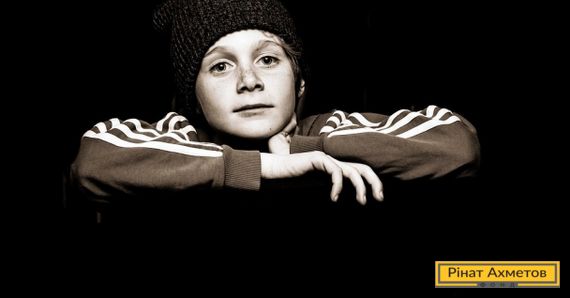ADVICES FOR MENTORS: how to increase a child's self-esteem?

Children that are being raised in orphanages prone to destructive thoughts and low self-esteem. Psychologists know this fact for a long time. But it can be unexpected for mentors, who just met orphaned children for the first time. That is why the psychologists and coordinators of the "Mentorship" project of Rinat Akhmetov Foundation prepared a series of tips that mentors can use to increase the self-esteem of children.
"Many children from orphanages have a difficult time recognizing that they have at least some value. They strongly refuse to admit the possibility of self-love. Due to the sad events of the past they find themselves insignificant and doomed. Children perceive the world with fear and do not believe in possibility of confronting its hardships. Unexpected or new situations are considered as a threat to their personal happiness and security. They are pessimistic about life, unsure of their socially significant skills; over-sensitive to the opinions of others. They are constantly concentrated on the past. As for communication and behaviour, these children usually take a defensive position or take all the biting words and pain personally ‒ they are used to the fact that others belittle them. Orphanage kids usually follow the crowd and avoid independent opinion or behaviour; they tend to shift the responsibility for negative situations or feelings to other shoulders", ‒ Kateryna Stepanina, Coordinator of "Mentorship" project in Sviatohirsk, explains.
And this problem does not appear in a day. And it also cannot be solved in one day. Correction of a teenagers' negative opinion about themselves, which has already been formed, will require a lot of mentors' time, efforts and responsibility. The actions should be gradual and intelligent.
It is important to remember that many children don't know what it feels like when grown-ups or age-mates really listen to them. Therefore, the mentors, who started working with children, must develop the habit of careful listening to their boarders. Listen to their self-critique, negative description of themselves, listen to what they say about their parents, significant others, their childhood friends, school and attitude to others. Only after careful listening to a child and hearing him/her, you will be able to help.
You can ask questions and carefully figure out the teenager's ideas and attitudes towards himself/herself, find out about his/her self-image:
- How would you describe yourself?
- How valuable are you?
- Do you ever kick yourself for something?
- Do you think other people are like you?
- Do you like yourself? Why?
- How do you think your teachers, friends and other people feel about you?
- What do you like about yourself?
- What would you like to change?
When working with children, it is very convenient to use different projective techniques that allow the child to remove the clamps and the barriers of his/her subconsciousness and let the deep cause of his/her suffering out. Art therapies also help with identification of the child's problem and its subsequent correction. The main things in this therapy are:
- Being spontaneous. The work goes better if the child responds to his/her problem spontaneously, uses more imagination than logic. At the same time mentor avoids long monologues and rhetoric, allowing the child to be involved in the action.
- Respect and acceptance of choice. One shouldn't forget about respecting child as a person and taking care of his/her comfort and safety.
- Author's right. It is important to give the child the feeling that you really value his/her intellect and imagination. Refrain from your assessment feedback of the kid's successes and achievements, because there are no "wrong" answers or stories.
- Tolerance. It is important that mentor remembers about respect and value of the child's opinion. And one shouldn't argue about the interpretation of desires and dreams that the child sees or feels. But it is important to ask questions about it, to clarify what might be unclear both for the mentor and the child. This is a better way to understand and support the kid.
- Personal boundaries. In any kind of work it is important to appreciate each other's individuality and the difference of one person from another. It would be right to assume that the child sees and feels not the same thing that mentor does.
When working with paper, paints, pencils and glue, you can ask the kid later:
- How is the interaction with brushes and paints similar to your inner attitude to yourself?
- Did you go outside the lines when drawing? What did you feel then?
- What do you want to express in relation to others and what do you want to get as a result?
In the course of work it is important to pay attention to the child's behaviour and listen not only to the words, but also to the feelings. Pay attention to the "body language". It is appropriate to share your warmth and fellow feeling to the kid through empathic acceptance.
It is equally important to help the child identify the way to form a healthy self-esteem, to see his/her strong features. You can help to identify the area, where the child is special, extraordinary, better than others. These feelings will help kids to believe in their value.
"It is very good when a child makes up an action plan to achieve the desired goal. The kid can act by the algorithm, where the main thing is accepting yourself, the next thing – getting to know yourself. In this process it is really important not to lose yourself and not to become someone else's copy, comparing yourself with others. To develop love for yourself. And what is particularly interesting, to be able to forget about your history and past", – Kateryna Stepanina emphasized.




